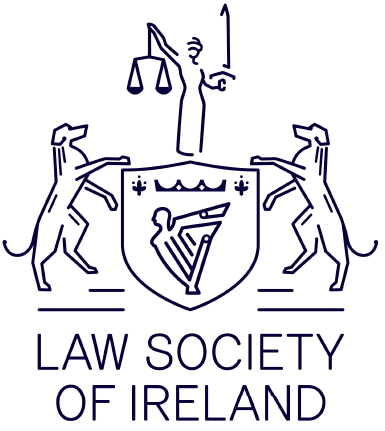Most people don’t think twice about checking prescriptions before submitting them to the pharmacist. You have likely visited a GP multiple times in your life and you rightfully trust in their expertise to look after your health until you have a reason to think otherwise. The onus is not on you to check that they have done their job correctly. In the majority of instances, the prescriber does so accurately and you recover after taking the medication provided.
However, mistakes can happen. And serious physical or mental health consequences can occur if a medical expert makes a mistake when prescribing a medicine. The damage caused by such errors can range from minimal to much more significant harm caused to the patient. Just one slip up can result in a lifetime of monetary, physical, and emotional burden.
You may be able to file a claim for medication negligence if a prescription error has caused you distress or damage. If this has happened to you, contact us to discuss your case directly and we will take a detailed account of your experience so that we can advise you of your options.
What is a prescription error?
A general definition of a prescription error is any mistake made by medical professionals in assigning medications as therapy to a patient. This expands to any preventable act of prescribing medication which results in inappropriate therapy or harm to a patient.
Some prescription errors are more prevalent than others. These can often go unnoticed or be overlooked if there is no consequence to the patient. However this is not something that should be downplayed and it is important to note the severity of risk of harm to the patient in each and every instance. You might catch the mistake made by your doctor before you have to deal with the consequences, but you shouldn’t have to.
Whilst many of these errors do not have severe health implications, this is still a serious breach of the duty of care you deserve to receive from your doctor. You can be assured that if/when severe complications do arise, we will help you seek justice to get the answers and compensation you are entitled to. We cannot change what has happened to you but we can help you to move forward by securing peace of mind and the resources you need to help you to do so.
What are some common medication errors?
The European Medicines Agency defines a medication error as “an unintended failure in the drug treatment process that leads to, or has the potential to lead to, harm to the patient.”
Prescription and medication errors often go hand in hand and can be a result of human error deriving from slips, lapses, or mistakes. This includes any combination of inaccuracy in writing the original prescription, poor handwriting, and use of unclear language or uncommon abbreviations. A primary example are mistakes caused due to similarities in the brand or pharmaceutical names of the prescribed drug. Another recognised issue is the failure to coordinate between a hospital and a general practitioner.

The most common mistakes leading to prescription error claims include:
Incorrect Dosage/Strength
A 2019 report published in the British Journal of Pharmacology reviewed medical litigation in Ireland over a 6 year period. This identified that incorrect dosage/strength followed by incorrect drug, adverse reaction, drug contraindicated, and delated/omitted dose is the most common error category.
Communication Breakdown
Problems with communication between the doctor and patient and the doctor/pharmacist can cause prescription errors to occur. These include:
Insufficient Patient Information
Your doctor has a responsibility to enquire and take note of your previous and current medication history. Failure to do so can lead to serious implications when the doctor is not aware of any allergies you may have to the prescribed medications.
Poor Coordination / Information Flow
It’s common to move around between various doctors, specialists, and departments when dealing with an illness. When this happens, these medical professionals should coordinate with each other to ensure that your patient file is kept up to date and they are aware of your current medications and test results. Poor coordination in this process can mean the patients information does not follow them between departments/facilities, which can lead to problems such as:
Lack of Knowledge
Although it is no excuse, the seniority of the prescribing doctor is often at play when medication errors occur. This doesn’t mean that a junior doctor is incapable of providing adequate treatment, the majority of junior doctors are suitably skilled and capable of looking after their patients. However the experience level of the prescribing physician cannot be overlooked when an error occurs. Junior doctors may have insufficient knowledge or training and often work in stressful conditions that are not an issue for more experienced doctors. This can lead to inappropriate prescribing by the junior doctor.
How common are prescription errors?
Methods of collecting data on prescription errors vary wildly. Overall, however, it is clear that prescribing errors are a common occurrence across the globe. In Ireland, the Institute of Medicine estimates that at least one medication error occurs per hospital patient each day. That’s 3 million medication errors per patient in Irish hospitals every year.
This figure is multiplied over in the UK, where a 2018 report identified over 230 million prescription errors in the NHS contributing to up to 22,300 deaths per year.
Whilst many of these errors do not have severe health implications, this is still a serious breach of the duty of care you deserve to receive from your doctor. You can be assured that if/when severe complications do arise, we will help you seek justice to get the answers and compensation you are entitled to. We cannot change what has happened to you but we can help you to move forward by securing peace of mind and the resources you need to help you to do so.
In addition from the most common medication errors listed above, these medication and prescription errors also include:
Can a patient sue a doctor for giving wrong medications?
If a medical professional has prescribed a medication incorrectly, it can lead to serious negative physical or mental health outcomes. If you or a family member has experienced injury or harm as a result of a prescription error, you may be eligible to make a claim for medical negligence.
To bring a claim, it will be necessary to show that the prescription was written or dispensed incorrectly or incompetently and that this error caused you measurable injury or damage. Proving this will require evidence, medical records and expert medical opinions which we will work hard to retrieve to help you to build the best possible case.
Prescription error & medication negligence claims fall into two categories:
It’s important to be aware that prescription errors and medication mistakes can occur at any stage in the process from when the medication is manufactured to when you receive it.
In some instances, the patient may have some responsibility for not disclosing an accurate medical history to the doctor which could potentially have harmful interaction with the prescribed medication.
The doctor may not be listable such cases and we will give an honest assessment and review all of these factors in advance of the decision whether to pursue your claim.
For more information, get in touch with our team today.
Contact us now
in confidence.
O’Brien & Company Solicitors has a wealth of experience and a history of success in personal injury and medical negligence cases.
We pride ourselves on achieving the best results for our clients whilst at the same time making everything as straightforward and clear for you as possible.


